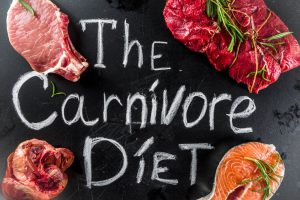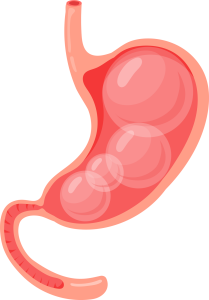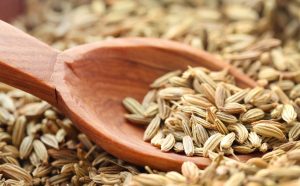The carnivore diet, or the lion or meat-only diet, is a restrictive eating plan that involves consuming only animal products—primarily meat, fish, eggs, and sometimes dairy. This diet excludes all plant-based foods, including fruits, vegetables, grains, nuts, and seeds. While it may sound extreme, the carnivore diet has gained popularity recently due to claims of improved health, weight loss, and relief from chronic conditions such as autoimmune diseases and mental health issues. However, the diet also raises concerns about nutritional deficiencies and digestive problems.
In this article, we will explore the benefits and potential downsides of the carnivore diet and discuss how digestive enzymes can play a vital role in supporting digestion for those who follow it.
What is the Carnivore Diet?
The carnivore diet is based on the premise that humans can thrive on an all-animal-based diet, similar to the eating habits of our ancestors, who relied heavily on animal products for sustenance. In this diet, participants typically consume the following:
- Meat (beef, lamb, chicken, and other meats)
- Fish and seafood
- Eggs
- Animal fats (lard, tallow, butter)
- Dairy products (optional and depending on individual tolerance)
Unlike most other diets, the carnivore diet excludes carbohydrates, including fiber, and strictly eliminates plant-based foods. The focus is solely on consuming protein and fat from animal sources.
Benefits of the Carnivore Diet
Weight Loss
A significant benefit of the carnivore diet is weight loss, often occurring within the first few weeks. Several factors contribute to this:
- Reduced Insulin Levels: The body lowers insulin by eliminating carbohydrates, preventing excess glucose from being stored as fat.
- Increased Satiety: High-protein meals promote a feeling of fullness and naturally reduce calorie intake by slowing digestion and stabilizing hunger hormones.
- Elimination of Processed Foods: Removing processed foods and sugars eliminates excess calories and blood sugar spikes, promoting weight loss.
- Fat Adaptation: The body burns fat for energy over time, further enhancing fat loss and metabolic flexibility.
- Stable Blood Sugar: Without carbs, blood sugar does not rapidly spike or drop, reducing hunger and cravings.
- Caloric Efficiency: High-protein, nutrient-dense foods provide essential energy without the excess calories of carb-heavy foods.
Reduced Inflammation
The carnivore diet may help reduce chronic inflammation, especially in people with autoimmune conditions like rheumatoid arthritis, lupus, and psoriasis.
- Elimination of Grains and Gluten: For individuals sensitive to gluten, eliminating grains can reduce gut inflammation and alleviate symptoms like joint pain and digestive issues.
- Exclusion of Plant Irritants: The diet removes lectins, oxalates, and phytates, which can disrupt gut function and contribute to inflammation in sensitive individuals.
- Reduced Carb-Induced Inflammation: By eliminating refined carbs and sugars, the diet lowers glycation and pro-inflammatory cytokines, contributing to inflammation.
- Omega-3 Balance: The diet is high in omega-3s from fatty fish and grass-fed meats, which reduce inflammation while cutting out omega-6-rich processed oils that promote it.
Improved Mental Health
Many report better mood, mental clarity, and energy on the carnivore diet. This can be attributed to:
- Stable Blood Sugar: Eliminating carbs prevents blood sugar fluctuations, reducing fatigue, irritability, and mood swings.
- Neurotransmitter Support: High protein intake boosts amino acids like tryptophan (for serotonin) and tyrosine (for dopamine), improving mood and focus.
- Fat Utilization: The diet promotes ketosis, which provides the brain with steady energy from ketones, improves focus, and reduces brain fog.
- Reduced Brain Inflammation: Removing inflammatory foods, such as refined sugars, may decrease neuroinflammation, supporting mental health.
Increased Energy Levels
The carnivore diet often leads to higher energy levels due to:
- Ketosis: Relying on fat as a primary fuel source provides a steady, sustained energy supply, avoiding the energy dips common with glucose metabolism.
- Improved Mental Clarity: Ketones offer a consistent energy source for the brain, reducing cognitive fatigue and enhancing focus.
Less Brain Fog: By eliminating carbs and inflammation-triggering foods, people experience fewer energy crashes and clearer thinking.
Gut Health Improvements
Many individuals following the carnivore diet report significant improvements in gut health, especially those with IBS, Crohn’s disease, and other gastrointestinal disorders. For some, eliminating fiber and plant-based foods alleviates symptoms such as bloating, gas, diarrhea, and abdominal pain. The carnivore diet’s ability to relieve these symptoms in certain people highlights the complexity of gut health and how individuals react to various foods.
Elimination of Gut Irritants
Certain plant-based foods high in fiber, lectins, oxalates, and phytates can irritate the gut, especially those with sensitive digestive systems. For individuals with IBS or Crohn’s disease, high-fiber foods may worsen symptoms by causing gas and bloating as gut bacteria ferment fiber. The carnivore diet eliminates these irritants, potentially reducing inflammation, bloating, and cramping.
- Lectins in grains and legumes can increase intestinal permeability (leaky gut) in sensitive individuals, triggering inflammation.
- Oxalates in foods like spinach and nuts may lead to kidney stones or worsen gut irritation.
- Phytates, found in grains and seeds, can interfere with mineral absorption.
The carnivore diet can help calm gut inflammation and improve overall digestive function by removing these potential irritants.
Reduced Fermentation and Gas Production
Plant-based foods, particularly those high in FODMAPs and fermentable fibers, can cause excess gas and bloating in people with digestive issues. These foods are often incompletely digested in the small intestine, leading to colon fermentation, producing gas and discomfort. By eliminating fermentable carbohydrates, the carnivore diet reduces the substrates available for fermentation, helping minimize gas, bloating, and discomfort, especially in individuals with IBS.
Improved Gut Barrier Function
The gut lining protects the body from harmful substances. However, in conditions like a leaky gut, the gut becomes permeable, allowing toxins and undigested food particles to enter the bloodstream and trigger inflammation. By eliminating foods that disrupt the gut lining, such as lectins and gluten, the carnivore diet may help restore gut barrier integrity, reduce inflammation, and improve gut health.
Reduced Gut Inflammation
Chronic gut inflammation is key in conditions like Crohn’s disease and ulcerative colitis. Plant-based foods, especially high-fiber grains and legumes, can aggravate the already inflamed digestive tracts of people with these conditions. The carnivore diet’s removal of these potential triggers can reduce inflammation, relieve abdominal pain, and improve bowel function.
Impact on Gut Microbiota
Eliminating fiber and plant-based foods changes the gut microbiota. Although fiber is typically considered beneficial for gut bacteria, some people on the carnivore diet report improved gut health despite its absence. In cases like SIBO, where bacterial overgrowth in the small intestine causes issues, the carnivore diet’s lack of fermentable material may help “starve” the overgrown bacteria, reducing symptoms like bloating and gas. This suggests that the gut microbiota can adapt to the diet, shifting to bacteria that thrive on animal-based proteins.
Negative Aspects and Risks of the Carnivore Diet
While the carnivore diet has gained popularity for its benefits, it also comes with potential risks:
Nutrient Deficiencies
Excluding all plant-based foods may lead to nutrient deficiencies, as individuals miss out on essential vitamins and minerals in fruits, vegetables, and grains.
- Vitamin C: Crucial for immune function, collagen production, and antioxidant defense. Vitamin C is primarily found in fruits and vegetables. Organ meats provide only small amounts, potentially leading to deficiencies.
- Fiber: Fiber is necessary for gut health and digestion, but it is absent in the carnivore diet. This can lead to constipation and an imbalance in gut bacteria.
- Phytochemicals and Antioxidants: These compounds help fight inflammation and oxidative stress in plant foods. Their absence may increase the risk of chronic diseases like cancer and heart disease.
- Other Deficiencies: The diet may lack vitamin K1 (from leafy greens), magnesium, potassium, and folate, all essential for overall health.
Mitigation Strategies: Incorporating organ meats, bone broth, and collagen supplements can help address gaps. Supplementation of key nutrients like vitamin C and magnesium may also be necessary, but it’s important to consult a healthcare provider.
Heart Health Concerns
High intake of saturated fats from animal products raises concerns about elevated LDL cholesterol and potential heart disease risks. While some argue the link between saturated fat and heart disease is inconclusive, others maintain that excessive consumption of saturated fats can negatively impact heart health, particularly in individuals with preexisting cardiovascular conditions.
Digestive Issues
The carnivore diet’s lack of fiber and high fat intake may cause digestive issues. While some report relief from bloating and IBS, others experience constipation, diarrhea, or indigestion, especially during the adaptation phase. The body may struggle to adjust to the high fat and protein intake, leading to discomfort.
Potential Kidney Strain
High-protein diets like the carnivore diet can increase kidney strain, particularly for individuals with existing kidney conditions. Excessive protein intake leads to more byproducts like urea, which the kidneys must filter, potentially causing long-term strain, especially in those with compromised kidney function. While healthy individuals may not be affected, those with kidney concerns should monitor their protein intake carefully.
The Role of Digestive Enzymes in Supporting the Carnivore Diet
For those who follow the carnivore diet, digestive enzymes can play a critical role in aiding digestion and reducing the discomfort associated with high-fat and high-protein meals. Here’s how digestive enzymes can help:
Breaking Down Fats with Lipase
The carnivore diet is high in fats, especially saturated fats from red meat, butter, and animal fats. For some individuals, consuming large amounts of fat can overwhelm the body’s ability to produce enough lipase, the enzyme responsible for breaking down fats into fatty acids and glycerol. Insufficient lipase can lead to symptoms like bloating, indigestion, and steatorrhea (fatty stools).
Lipase supplements can support fat digestion, ensuring that fats are broken down more efficiently. They can also prevent bloating and promote better absorption of fat-soluble vitamins (A, D, E, and K).
Improving Protein Digestion with Protease
Since the carnivore diet is protein-centric, consuming large amounts of meat requires the body to produce enough protease, the enzyme responsible for breaking down proteins into smaller peptides and amino acids. Undigested proteins can pass into the large intestine without adequate protease, leading to putrefaction, gas, and bloating.
Protease supplements can help break down protein more effectively, reducing the likelihood of indigestion, gas, and bloating that may result from high-protein meals.
Reducing Bloating with Betaine HCl
Some individuals on the carnivore diet may struggle with low stomach acid. Stomach acid is necessary for breaking down proteins and absorbing key nutrients like vitamin B12 and iron. Low stomach acid can lead to bloating and indigestion after high-protein meals.
Betaine HCl is a supplement that increases stomach acid production, helping to break down proteins and improve nutrient absorption. This can particularly benefit those experiencing digestive discomfort after large meat-based meals.
Alleviating Constipation with Digestive Enzymes
The lack of fiber in the carnivore diet can lead to constipation for some individuals. While digestive enzymes do not directly provide fiber, they can improve overall digestion and reduce the digestive system’s workload, preventing food’s slow transit through the gut.
Digestive enzyme supplements that contain a blend of lipase, protease, and other enzymes can improve the breakdown of fats and proteins, ensuring that digestion runs more smoothly and reducing the chances of constipation.
Goodness Digestive Enzymes: Supporting Digestive Health on the Carnivore Diet
For individuals following the carnivore diet, Goodness Digestive Enzymes can be a valuable supplement to help optimize digestion, especially given the high intake of protein and fats, which can be challenging for some people to digest efficiently. The carnivore diet often excludes plant-based foods that naturally provide digestive support, such as fiber, which can lead to issues like bloating, constipation, and indigestion during the adaptation phase. Goodness Digestive Enzymes contain a blend of essential enzymes, including protease, which aids in the breakdown of proteins into amino acids for absorption, and lipase, which supports the digestion of fats into fatty acids. These enzymes help reduce the digestive workload, improve nutrient absorption, and prevent common issues like indigestion and bloating. By ensuring that the body can efficiently process the high-protein and high-fat meals typical of the carnivore diet, Goodness Digestive Enzymes can enhance gut comfort and support long-term digestive health for those committed to this dietary approach.
Conclusion
The carnivore diet offers potential benefits, such as weight loss, reduced inflammation, and improved mental clarity, but it also presents challenges like nutrient deficiencies, digestive issues, and heart health concerns. Incorporating digestive enzymes into your routine can support the digestion of high-fat and high-protein meals, reducing the risk of bloating, gas, and indigestion and improving overall gut health for those following the carnivore diet. By ensuring that the body can efficiently break down fats, proteins, and other nutrients, digestive enzymes help make the carnivore diet more sustainable and comfortable in the long run.
-
Product on sale
 Goodness Digestive EnzymesOriginal price was: $ 29.95.$ 25.95Current price is: $ 25.95.
Goodness Digestive EnzymesOriginal price was: $ 29.95.$ 25.95Current price is: $ 25.95.






